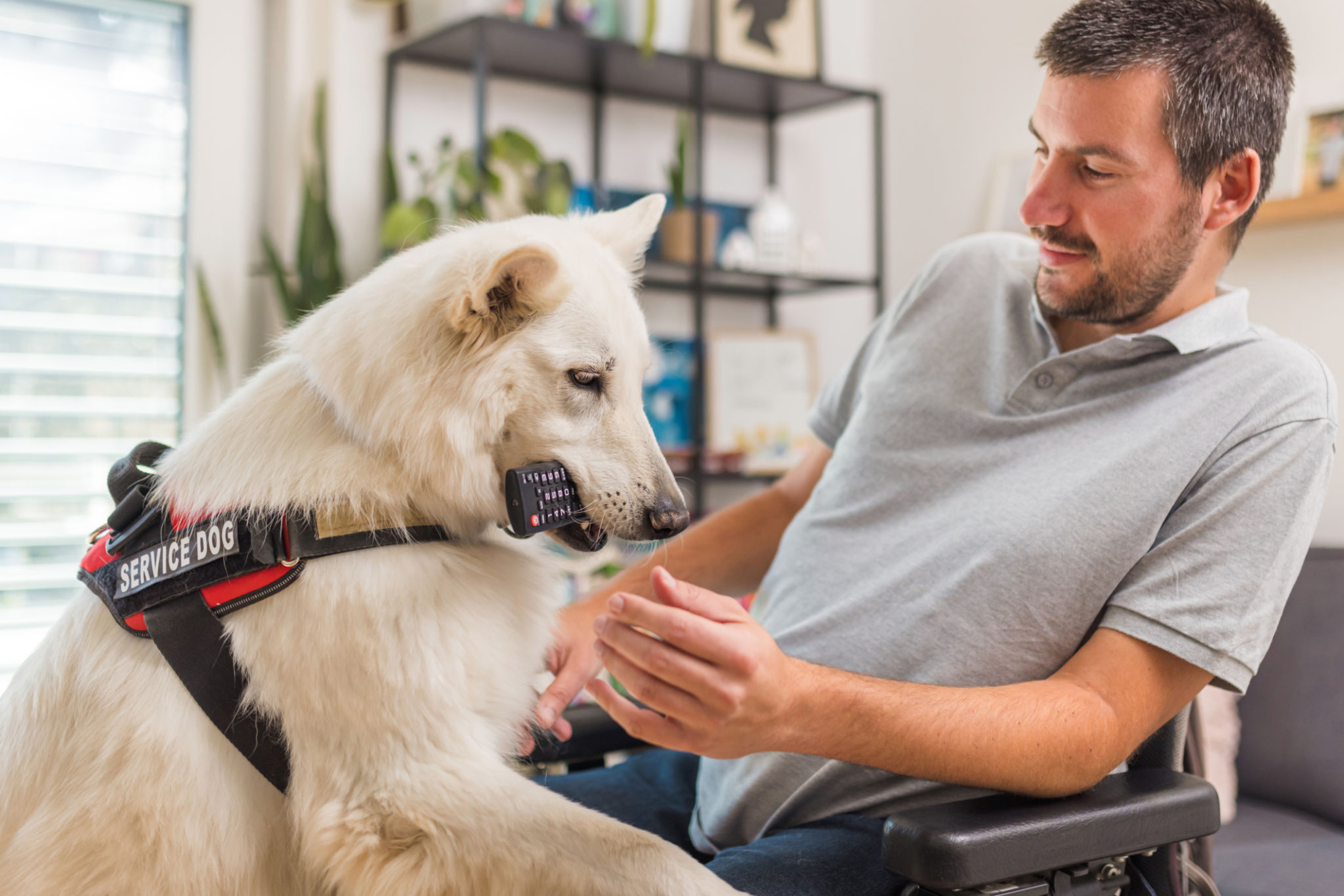How Psychiatric Service Dogs Can Help with Anxiety Management
Understanding Psychiatric Service Dogs
For many individuals dealing with anxiety disorders, everyday life can be filled with overwhelming stress and challenges. Psychiatric service dogs can serve as a critical component in managing anxiety, providing not only emotional support but also practical assistance. These specially trained dogs are not just pets; they are working animals with a specific purpose to assist their owners in navigating the complexities of their mental health conditions.
The Role of Psychiatric Service Dogs
Psychiatric service dogs are trained to perform tasks that directly help mitigate their handler's psychiatric symptoms. These tasks can include reminding their owner to take medication, interrupting self-harming behaviors, or providing deep pressure therapy during anxiety attacks. Their presence can offer a sense of calm and stability, which is crucial for individuals struggling with anxiety.

How They Differ from Emotional Support Animals
It's important to distinguish psychiatric service dogs from emotional support animals (ESAs). While both provide immense comfort, psychiatric service dogs are trained to perform specific tasks, whereas ESAs offer general companionship. This distinction gives psychiatric service dogs certain legal protections under the Americans with Disabilities Act (ADA), allowing them access to public spaces where pets might not be permitted.
For individuals with anxiety, having a psychiatric service dog can mean the difference between staying at home and participating in public life. The trained tasks these animals perform empower their handlers to face situations they might otherwise avoid due to anxiety or panic.
Benefits of Psychiatric Service Dogs for Anxiety
Psychiatric service dogs can significantly enhance the quality of life for those with anxiety disorders. Here are some of the key benefits:
- Reduced Anxiety Levels: The constant companionship and non-judgmental presence of a service dog can help lower anxiety levels.
- Improved Social Interactions: With a service dog by their side, individuals may find it easier to engage in social situations.
- Increased Independence: Service dogs enable their handlers to perform daily activities with greater confidence and autonomy.

Training and Selection of Service Dogs
The process of selecting and training a psychiatric service dog is meticulous and tailored to the specific needs of the handler. Not every dog is suited for this role; it requires a particular temperament and aptitude for learning complex tasks. Professional trainers work with potential service dogs to ensure they can perform the necessary duties effectively and consistently.
Once trained, these dogs can be matched to individuals based on their specific anxiety-related needs, ensuring a harmonious partnership that promotes well-being and functionality.
Integration into Daily Life
Integrating a psychiatric service dog into daily life involves more than just training—it requires building a trusting relationship between the handler and the dog. This bond is crucial for the dog to effectively sense and respond to the handler's emotional state. Regular routines, consistent commands, and positive reinforcement help establish this essential connection.

The Long-Term Impact on Mental Health
Over time, psychiatric service dogs can have a profound impact on an individual's mental health. Their ability to anticipate anxiety episodes and provide physical comfort during distressing times can lead to long-term improvements in managing anxiety symptoms. Handlers often report feeling more grounded and less isolated, contributing to an overall better quality of life.
By offering both emotional support and practical assistance, psychiatric service dogs play a vital role in the comprehensive management of anxiety disorders. Their unique ability to enhance their handlers' lives underscores the powerful bond between humans and animals, showcasing yet another way that these incredible creatures contribute to our well-being.